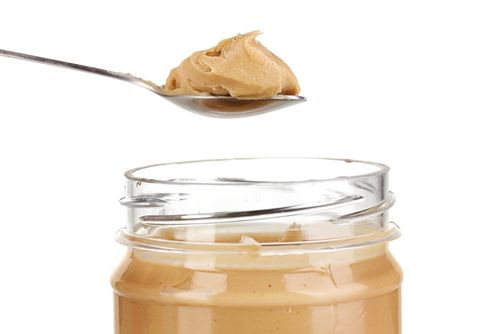Peanut Allergy Cures Found Inside Gut Bacteria; Lead Scientists Toward Food Allergy Treatment

Food allergies have been around for centuries since the first documented cases were recorded over 2,000 years ago by Hippocrates. Still today, celebrities such as Serena Williams, who has a peanut allergy, and Jessica Simpson, who has a wheat allergy, go on without a cure. Thankfully, research scientists from the University of Chicago have discovered a key cluster of gut bacteria that protects against food allergies and published their findings in the Proceedings of the National Academy of Sciences.
"We've identified a bacterial population that protects against food allergen sensitization," the study’s senior author Cathryn Nagler, food allergy professor at the University of Chicago, said in a press release. "The first step in getting sensitized to a food allergen is for it to get into your blood and be presented to your immune system. The presence of these bacteria regulates that process."
Allergies can be deadly and food allergy rates have skyrocketed among children with a 50 percent increase between 1997 and 2011, and there’s no sign of it slowing down anytime soon, according to the Centers for Disease Control and Prevention. By exposing mice to peanut allergens in a laboratory setting, they were able to lower their immune systems’ response when reintroducing Clostridia bacteria into their intestines. Allergies occur when the immune system responds abnormally to things that are typically harmless to humans, such as pollen, dust, cats, penicillin and even shellfish. Reversing that useless sensitivity can decrease the horrible reactions that go along with it.
"It's exciting because we know what the bacteria are; we have a way to intervene," Nagler said. "There are of course no guarantees, but this is absolutely testable as a therapeutic against a disease for which there's nothing. As a mom, I can imagine how frightening it must be to worry every time your child takes a bite of food."
The immune system attempts to protect the body from the incorrectly perceived harmful substances, by producing IgE antibodies that release chemicals into the bloodstream for protection; one of them is histamine. It’s what actually causes your eyes to water, nose to stuff up, throat to get itchy and close, lungs to inflame, and skin to break out in hives. The antibody trigger response can be mild, like a runny nose, or cause asthma attacks so severe that they can be fatal unless treatment is administered immediately.
Now that researchers have figured out that Clostridia makes the immune system produce high levels of interleukin-22 to decrease the sensitivity to peanut allergens compared to those who didn’t receive the Clostridia bacteria, they're one step closer to an effective food allergy treatment. When they gave mice antibodies that neutralized IL-22, allergen levels were significantly increased, which means the bacteria was really preventing the allergens from entering into the mice’s bloodstream and causing adverse reactions to peanuts. They’re considering the bacteria a barrier protective response that prevents sensitivity to food allergies and the Clostridia bacteria is common in humans, making a potential food allergy treatment possible.
"Food allergies affect 15 million Americans, including one in 13 children, who live with this potentially life-threatening disease that currently has no cure," Mary Jane Marchisotto, senior vice president of research at Food Allergy Research & Education, said in a press release. "We have been pleased to support the research that has been conducted by Dr. Nagler and her colleagues at the University of Chicago."
Source: Nagler C, Stefka AT, Feehley T, McCoy KD, Mazmanian SK, Tjota MY, et al. Commensal bacteria protect against food allergen sensitization. Proceedings of the National Academy of Sciences. 2014.



























